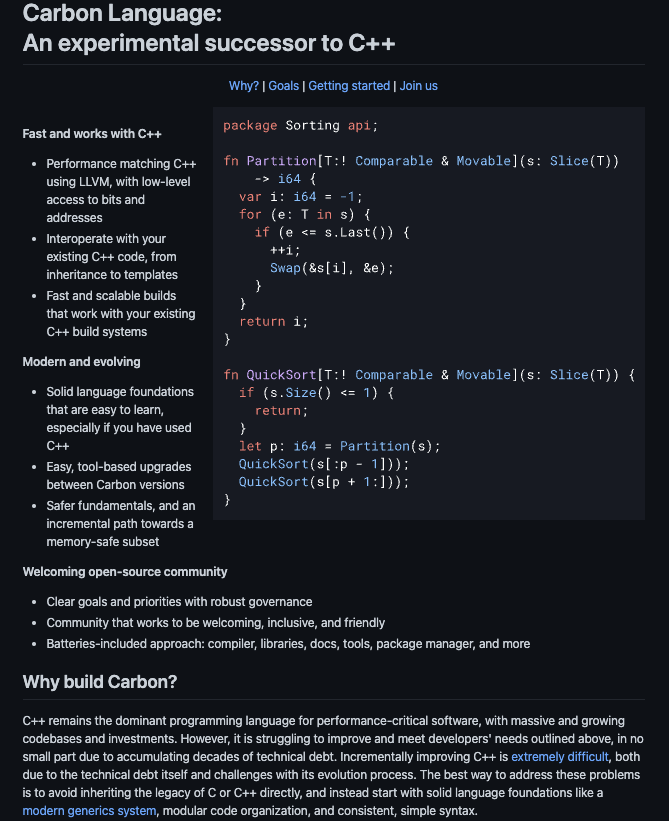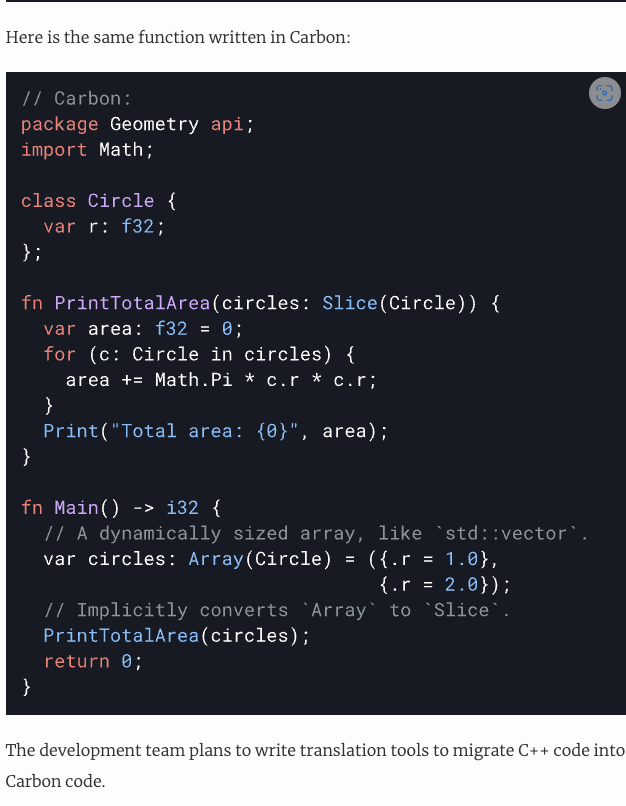Carbon: The Next Generation of C++ for High-Performance Coding
Carbon with its safety and efficiency can solve the issues related to C++ like memory management problems to provide software which are more reliable. It develops in an open-source fashion, sponsored by Google and maintained on GitHub and encourages fast innovation. The modern architecture of carbon qualifies it to create future generation applications within a rapidly changing technological environment.
Coming together with convenient use and the ability to operate high-performance software solutions, Carbon is a development that enables developers to produce scalable and permanent software. Be it handling projects in c++ or discovering new paradigms, the versatility of carbon makes it a game-changer as far as programmers are concerned in an attempt to remain on top in the field of software development.
-
1600 Amphitheatre Parkway in Mountain View, California
- Added by davieasyo
- $35 per hr
davieasyo
Rated: 4 stars
Carbon is fundamentally a successor language approach, rather than an attempt to incrementally evolve C++. It is designed around interoperability with C++ as well as large-scale adoption and migration for existing C++ codebases and developers.
The Reason Carbon is the Future of C++ programming
The development of carbon as a successor of C++ is based on the fact that it makes complex coding tasks simple without compromise on performance. Carbon has a simple syntax that makes it a lot faster to pick up than C++ and feel more productive, especially to the novice coder. This puts it in a good position to be the future of c++ programming.
The concern about the safety is embedded into the design of Carbon, which finally solves the well-known memory management traps in C++. This makes its applications compared to others more secure and reliable because its inherent features do not allow such pitfalls as memory leaks. This safe c++ coding is an attraction to the developers working on mission-critical systems.
The fact that carbon is compatible with the C++ language means that the developers get to use their old code and get modern to the practice. With the increasing need of speedier, safer programs in the industries Carbon is already ahead of its time, making it the favorite language that could be used to develop high-performance codes in the years to come.
The main differences between Carbon and C++ Key Features
As opposed to C++, carbon presents simpler syntax that makes it easier to read and write codes, including by basic users of c++ coding. Instead of manual memory management that C++ involves (and is quite error-prone), Carbon manages the process automatically. This is one of the differences that make Carbon a contemporary alternative.
Support of concurrency in Carbon is more natural (compared to C++) so the developers are able to easily make responsive multitasking applications. The generics system in Carbon is flexible (in contrast to the rigid structure of C++). This makes Carbon applicable to c++ projects and does not reduce the high performance of C++.
The design of carbon focuses on developer productivity, and it has tools that are integrated with the current workflows. C++ on the other hand cries outdated conventions and complicated standardization. Such distinctions make Carbon an attractive c++ alternative to constructing future-generation applications.
The way Carbon Improves Software Development
Carbon increases software development via simplification of coding which provides a quicker and error-free procedure as compared to the typical C++ programming. The use of safety also removes normal bugs like the ones that occur because of improper memory management, which makes applications stronger. This gives c++ developers a rather big jump.
Carbon provides compatibility with C++ code giving groups the capability to modernize any current project rather than necessarily building new ones. The compatibility saves time, resources, and hence it is easily adopted in large c++ software development. The productivity level in various fields such as gaming and AI increases with the help of the effectiveness of carbon.
Carbon code is open sourced, with community support on GitHub, and will continually be improved and adaptable. As opposed to the more sluggish pace associated with developments in C++, Carbon is based on a fast-moving development cycle allowing programmers to remain on the cutting edge of technology and redefine high-performance coding.




